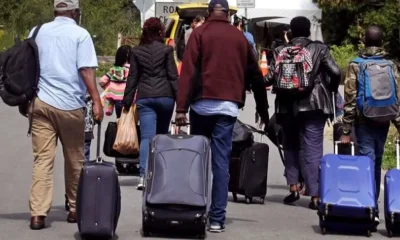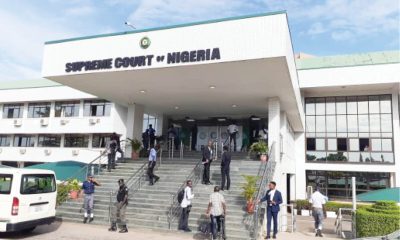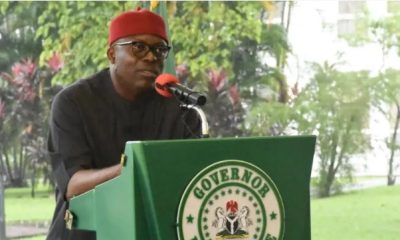The Director-General of the West Africa Region, African Development Bank (AfDB), Lamin Barrow, says the banks’s cumulative financing approvals in Nigeria stand at 10.9 billion dollars.
Barrow said this at the Second Interactive Session and Workshop on Developing Bankable Business Proposals/Business Plans for Youths in Agriculture on Monday in Abuja.
The News Agency of Nigeria (NAN) reports that the event is being held as part of the activities to celebrate the bank’s 60th anniversary with stakeholders.
“Over the last 60 years, the Bank has grown into a trusted partner and the continent’s premier development financial institution.
“Our cooperation with Nigeria has expanded over the years, especially considering that Nigeria is the largest shareholder.
“Since it started operations in the country, cumulative financing approvals has reached 10.9 billion dollars and our portfolio currently stands at 4.9 billion dollars supporting projects in the public and private sectors,” he said.
Barrow said the AfDB’s President, Dr Akinwumi Adesina, upon assumption of office eight years ago, prioritised the High 5–of Power, Feed, Industrialise, Integrate and Improve the quality of life for the people of Africa.
He said these were the accelerators for achieving the SDGs and the targets in the African Union’s Agenda 2063.
According to him, the projects and programmes supported during this period have impacted over 400 million people.
He said: “This Interactive Session provides an opportunity to discuss ways of addressing the many challenges faced by youths and women in Agro-business, including access to finance.
“We applaud the Federal Government of Nigeria in spearheading various initiatives and programmes to increase production and productivity in the sector.
“And its efforts to create job opportunities for the youths and women, and combat food insecurity in the wake of the high food inflation currently witnessed in Nigeria.”
According to him, the workshop will enhance the knowledge and skills of participants in preparing bankable proposals to unlock financial support for their enterprises.
Meanwhile, Mrs Marie-Laure Akin-Olugbade, AfDB’s Vice-President, Regional Development, Integration and Business Delivery Complex, during her keynote presentation, identified agriculture as a business.
“We are here to reimagine Africa’s future. A future powered by agriculture that backs the perception of agriculture as a low-income, low-status occupation that attracts only 21.5 per cent of youth.
“Where Women, comprising 50.8 per cent of Africa’s population, continue to face systemic challenges including gender-based discrimination, marginalisation, violence, and unequal access to education, land, resources, opportunity and a voice.
“Africa is home to 65 per cent of the world’s remaining arable land enough to feed 9.5 billion people in the world. Agriculture is a business,” she said.
According to the vice president, growth in the agricultural sector is two to four times more effective in reducing poverty than growth in other sectors.
She said by 2030, Africa’s food and agriculture market is projected to be valued at 1 trillion dollars.
“These numbers alone demonstrate the central importance of agriculture as a cornerstone of Africa’s economy and a solution to the continent’s and the world’s food insecurity.
“The question, therefore, is not whether Africa can feed itself, it is how quickly we can make it happen,” she said.
While reiterating AfDB’s efforts towards food security, Akin-Olugbade said the bank was collaborating with partners to allow private agribusinesses to establish industries that processed and add value to agricultural commodities.
“So, to our policymakers, I say this: The time for bold action is now. Every policy should ask: Are we going beyond empowering to invest in our youths?
“How does this support our women farmers? How does this move us closer to food sovereignty?
“To the youths and women: You are not just the future of Africa’s agriculture. You are its present. Your innovation, resilience, and determination are the seeds from which a new African agricultural revolution will grow,” she said.
The vice president said that by working together and focusing on these transformative initiatives, we would unlock the full potential of Africa’s agriculture.
She then expressed AfDB’s commitment to nurture the growth, and ensure that Africa’s future in agriculture is bright and prosperous for all.
NAN reports that the event was attended by government officials, partners, women and youths in agriculture and stakeholders in the agricultural value chain.


 Football4 hours ago
Football4 hours ago
 News23 hours ago
News23 hours ago
 Entertainment22 hours ago
Entertainment22 hours ago
 News10 hours ago
News10 hours ago
 Business10 hours ago
Business10 hours ago
 Business23 hours ago
Business23 hours ago
 Entertainment10 hours ago
Entertainment10 hours ago
 News7 hours ago
News7 hours ago
 News12 hours ago
News12 hours ago
 Entertainment22 hours ago
Entertainment22 hours ago





































